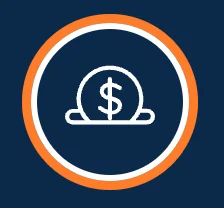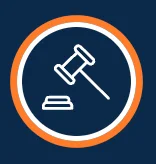One of the biggest technological shifts of the past decade is the rideshare service. In many parts of South Carolina, Uber and Lyft have replaced traditional taxicab services. This has made “ridesharing” more convenient and affordable for many Greenville-area residents. However, it has also raised several new legal issues, particularly concerning liability for a car accident and the question: Can you file a personal injury lawsuit against Uber or Lyft?
For example, if you are injured while taking an Uber or Lyft, who pays for your medical bills and other losses? Is the driver personally responsible? Or can you file a personal injury lawsuit against the rideshare service itself? And what happens if an Uber or Lyft driver hits someone else, such as another driver or a pedestrian? Who pays for that car accident?
Here is a brief rundown of how current South Carolina law addresses these questions and if you qualify to file a personal injury lawsuit against Uber or Lyft.
Transportation Network Companies vs. Taxi Services
On the surface, you may not think there is any legal distinction between a traditional taxicab driver and someone who provides rides via Uber or Lyft. That is not the case. Taxicabs and taxicab drivers are subject to several state and local regulations that do not apply to rideshare drivers. For example, the City of Greenville requires taxicab drivers to apply for and receive a special driver’s permit. Uber and Lyft drivers do not require such permits.
South Carolina state law classifies services like Uber and Lyft as Transportation Network Companies (TNCs). A TNC is a service that uses a digital platform to connect a passenger to a driver to secure a ride for compensation. Unlike a taxicab, a TNC driver cannot solicit or accept rides on-demand or via “hailing” from the street. A TNC driver must only accept ride requests through the digital network.
Taxicab drivers also typically work for a business entity as an employee. This makes the taxicab company, as the employer, vicariously liable for any car accidents caused by their drivers.
Concerning TNCs, however, things are a bit more complicated, as rideshare drivers are more commonly classified as “independent contractors.” In other words, these drivers are not considered “employees” of Uber or Lyft.
South Carolina’s Insurance Requirements for TNCs
So does this mean that Uber and Lyft are off the hook for any accident caused by one of their independent contractor drivers? No. South Carolina’s TNC rules require these companies to purchase and provide insurance coverage for their drivers when they are actively working under their platforms.
Like most states, South Carolina’s TNC rules establish a three-tier structure for determining a rideshare company’s financial responsibility for a car accident:
- If the rideshare driver is logged into the Uber or Lyft app and has accepted and/or picked up a passenger who requested a ride through the platform, the TNC must provide up to $1 million in third-party liability coverage. This coverage extends not only to the rideshare passenger but also anyone else injured due to the rideshare driver’s negligence. It also provides uninsured or underinsured motorist coverage for these individuals if another responsible driver lacks sufficient insurance.
- If the rideshare driver is logged into the Uber or Lyft app but has not yet accepted a passenger, the TNC must only provide limited coverage of $50,000 per person, $100,000 per accident, and $25,000 for property damage. This would cover a situation where a rideshare driver is waiting to accept a ride and hits someone else.
- If the rideshare driver is not logged into the Uber or Lyft app, then the TNC has no financial responsibility for any accident caused by or involving the rideshare driver. That driver’s personal auto insurance coverage would have to cover any accident.
It is important to note that individual drivers in South Carolina only need to carry minimum liability insurance of $25,000 per person, $50,000 per accident, and $25,000 in property damage. So for accidents where Uber or Lyft’s insurance is applicable, victims are far more likely to receive full and fair compensation from a personal injury lawsuit against Uber or Lyft for their losses than pursuing a claim only against the individual driver.
Rideshare Accidents and Third-Party Liability
The insurance rules discussed above focus on a TNC’s responsibility for an accident. Keep in mind, however, that just because you are injured while riding in an Uber or Lyft, does not necessarily make the rideshare driver liable for what happened. If your rideshare vehicle gets hit by a drunk driver, for example, obviously that driver would be at fault.
South Carolina is a fault-based state concerning car accidents. Any personal injury claim is the responsibility of whoever caused the accident. Of course, it is possible that two or more drivers contributed to the accident. So you may have a viable claim against both your rideshare driver–and by extension the TNC’s insurance policy–and a third-party driver.
Rideshare Drivers and Background Checks
Another concern arising from the popularity of rideshare services is passenger safety. South Carolina has seen several incidents where people pose as rideshare drivers to lure unsuspecting patrons, who are then the victims of physical and sexual assault.
To help combat this problem, South Carolina law requires all rideshare drivers to display their vehicle’s license plate number on a placard in the front of their vehicles. It is also a misdemeanor offense for anyone to misrepresent themselves as an Uber or Lyft driver.
While rideshare drivers may not be employees, Uber and Lyft are supposed to conduct background checks of anyone who applies to be a driver with their services. These checks include a review of the applicant’s criminal history and driving record, as well as a check to see if they are on any known sex offender registry. If a driver who should have been rejected is allowed to accept rideshare passengers, and subsequently injure or kill someone, the TNC could be sued for negligent hiring.
Injured in an Uber or Lyft Accident? Contact a Greenville Personal Injury Attorney Today
Anytime you are injured in a car accident, it is best to seek out legal advice from a qualified Greenville personal injury attorney. This is especially important if your accident involves a rideshare driver, for the reasons explained above. If you need to speak with an attorney as soon as possible, contact Jordan Law Center today to schedule a consultation.







“There is not enough GREAT THINGS I could say about Jordan Law Center.”